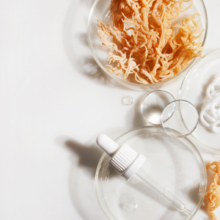5 Things to Know before Taking Vitamins
- Published: Thursday, June 12th 2014
- in Nutrition
 Vitamins…if you’re like me, you took your Flinstones chewable vitamins as a kid, and you probably haven’t ingested one since grade school, not only because of the chalky taste (my sister actually insists on purchasing adult gummy vitamins to curb that issue) but because you simply don’t know which one(s) to take. And let’s be serious, there are a ton of supplements out there for diet, hair, energy, etc. No wonder we’re confused.
Vitamins…if you’re like me, you took your Flinstones chewable vitamins as a kid, and you probably haven’t ingested one since grade school, not only because of the chalky taste (my sister actually insists on purchasing adult gummy vitamins to curb that issue) but because you simply don’t know which one(s) to take. And let’s be serious, there are a ton of supplements out there for diet, hair, energy, etc. No wonder we’re confused.
That’s why we didn’t think twice about reaching out to Marsha Hudnall, MS, RDN, CD, president and co-owner of Green Mountain at Fox Run, who shared this practical, all-consuming insight about vitamin supplements:
- Everybody’s different. “Whether you need vitamin supplements and which ones is very individual,” Hudnall says.
- Vitamins have limits. “If someone doesn’t eat that well, a multivitamin-mineral supplement may help provide some extra that is going missing in their diets. But I say that with this caveat: Vitamin supplements are just that—supplements. They don’t replace healthy eating, and in fact, supplements don’t work well without healthy foods because your body needs a wide range of nutrients and other food factors to thrive,” Hudnall reveals.
- Seek professional help. “I always recommend working with a nutrition professional who is skilled in determining your needs, and who also has a broad knowledge of how to best ensure optimal absorption and metabolism of the supplements you do take,” she continues.
- Change it up. “If supplements are recommended, it’s also important to understand that needs may change as your body heals, in the case of disease processes, or just as you go through the cycle of life,” Hudnall recommends, “so it’s key to work with a nutritionist over time to assess your body’s changing needs to get the most benefit from vitamin supplements, as well as avoid getting too much of any nutrients.”
- Vitamin D details. “One supplement in particular that many people need to take is vitamin D,” she adds. “But because it is possible to overdose on it, a person needs to have their levels of vitamin D checked first, and work with a health professional to determine how much to take and for how long.”



